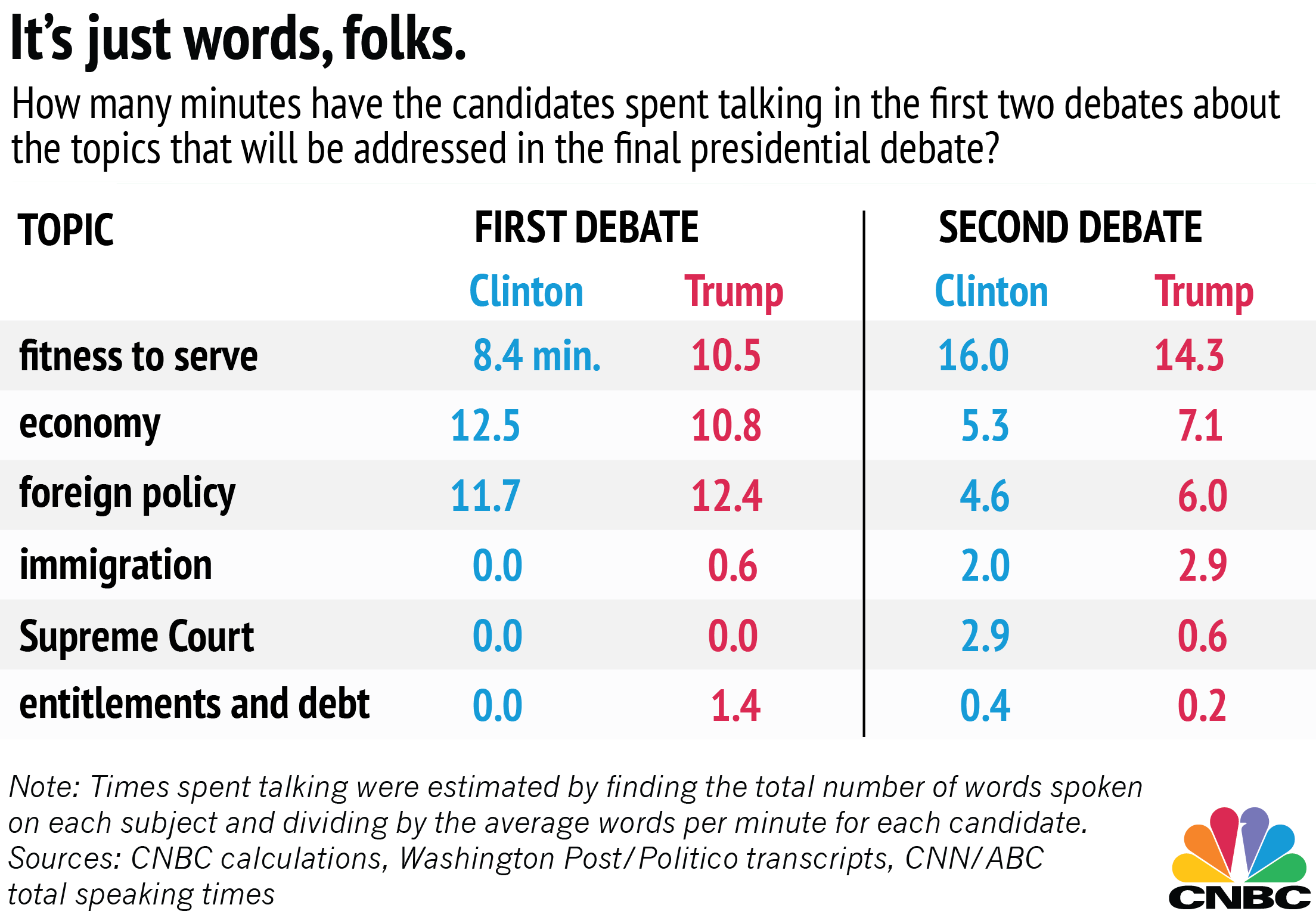Donald Trump faces an uphill battle against Hillary Clinton on Wednesday night in the third and final presidential debate.
The event, this time at the University of Nevada, Las Vegas, is the final 90 minutes of face-to-face confrontation before voters hit the polls Nov. 8. It is meant to be both a forum for the public to hear the candidates' views and an opportunity for the candidates to articulate why they deserve a vote on Election Day. This being 2016, things have gone in a different direction.
A list of six topics for the third and final debate was released last week: foreign policy, entitlements and debt, the Supreme Court, the economy, immigration and each candidates' fitness to serve as president. These topics have all been touched on in the first two debates, according to a CNBC analysis of debate transcripts. Some only for a few minutes.




